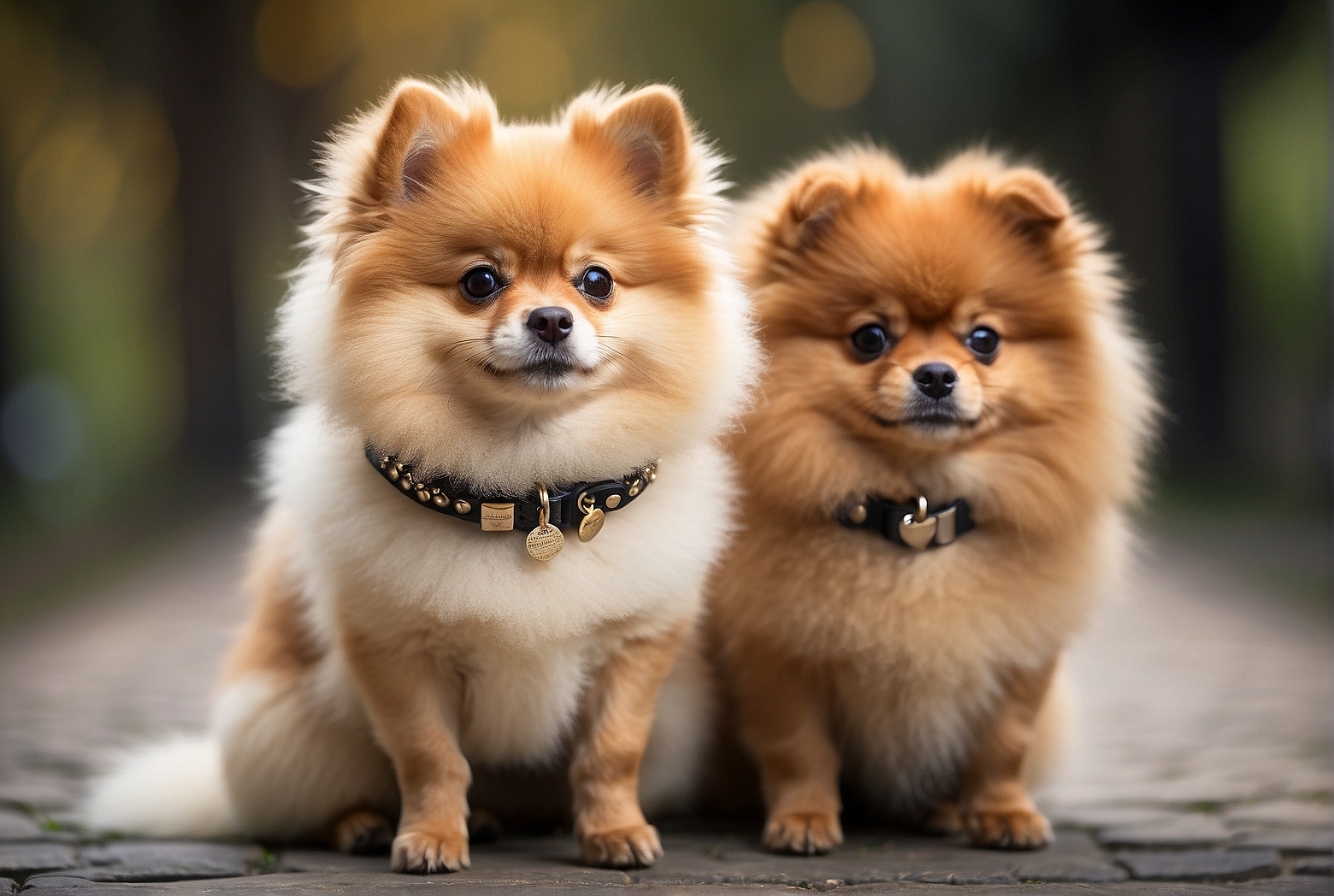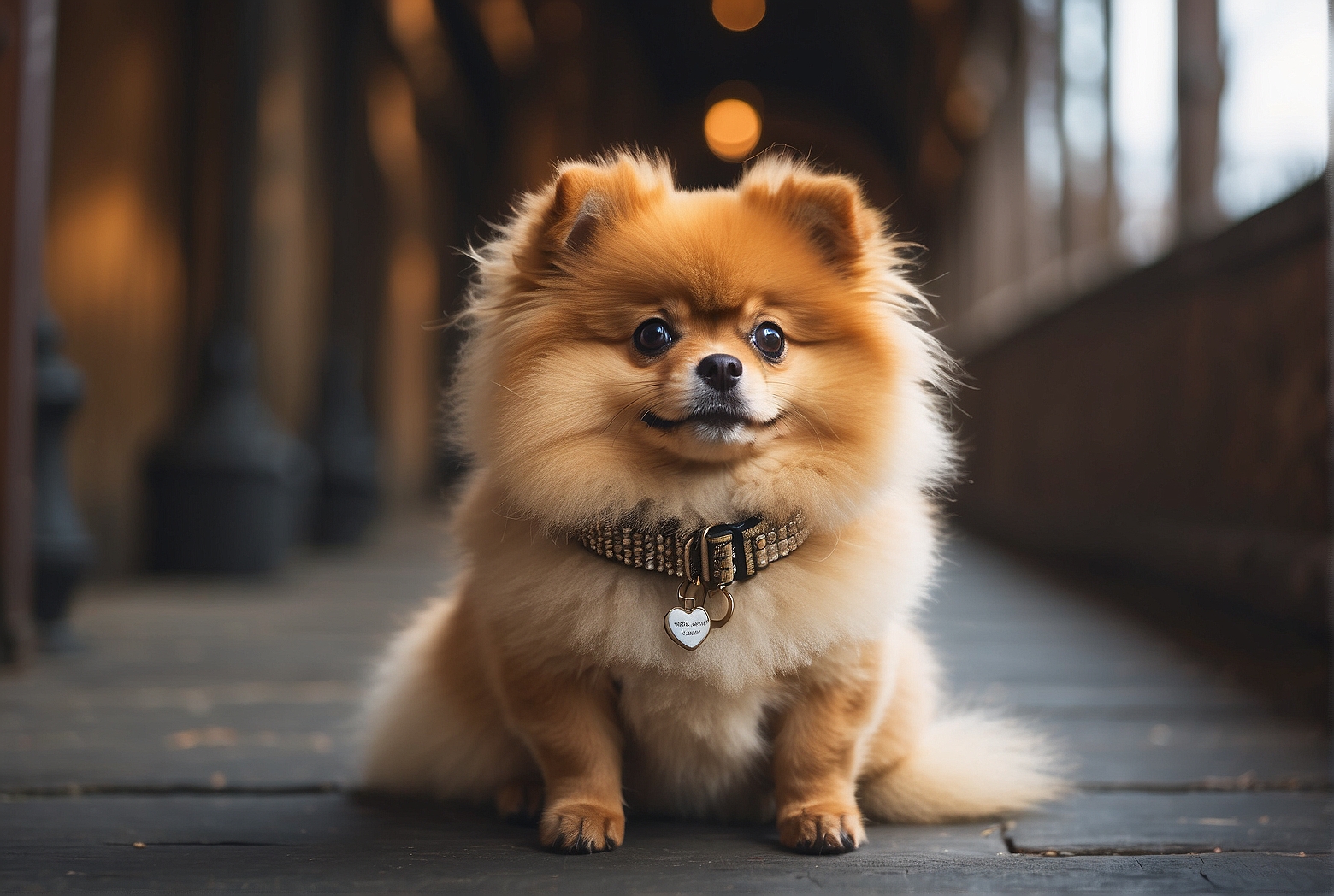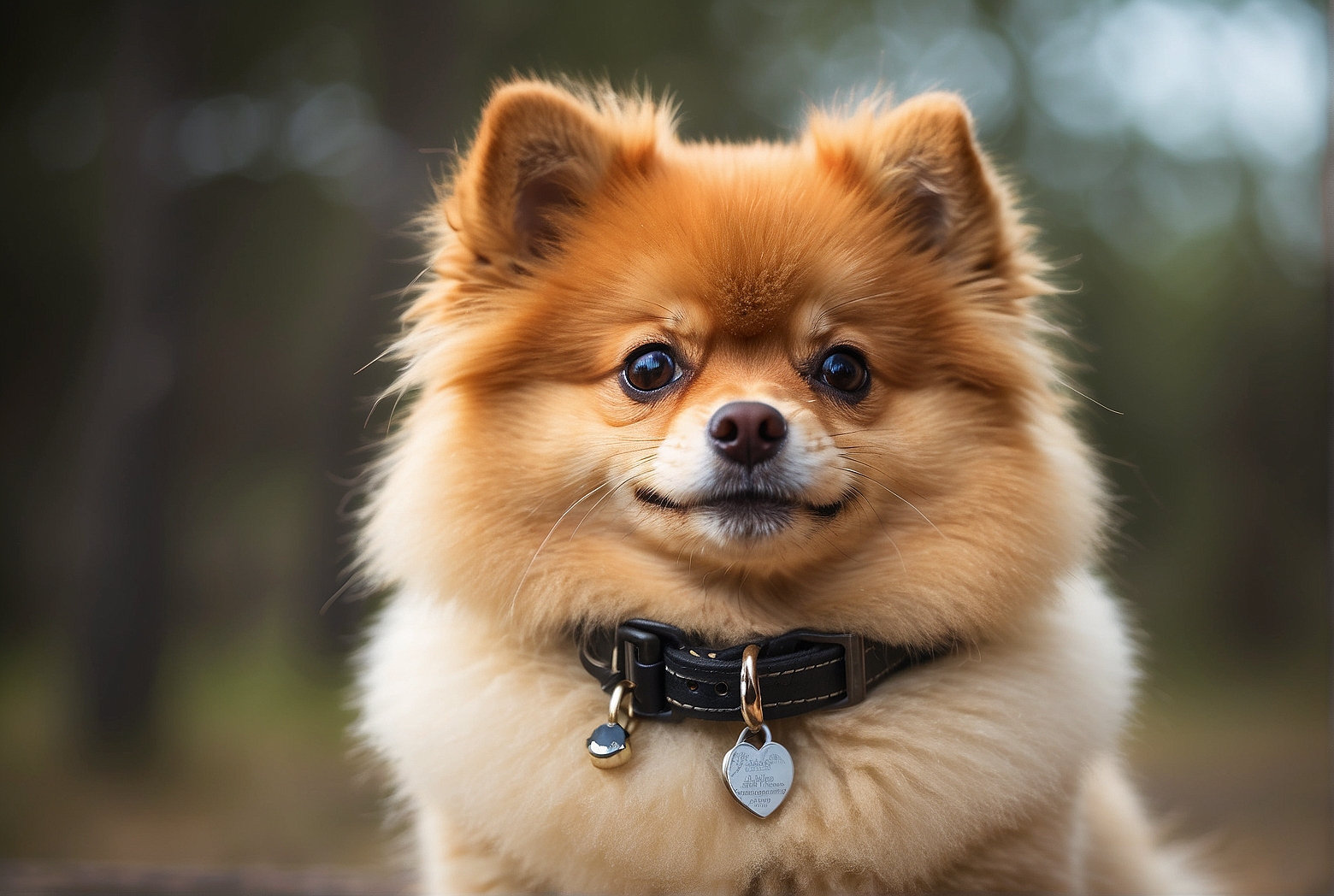If you’re a proud Pomeranian parent, finding the perfect collar for your furry little friend can seem like a daunting task. With so many options available, it can be overwhelming to know which one is best suited for your Pomeranian’s needs. But worry not, because in this article, we’ll guide you through the process of choosing the best collar for your adorable Pomeranian. From stylish and comfortable options to practical and sturdy choices, we’ve got you covered. So let’s get started on finding the perfect collar that will keep your Pomeranian looking fashionable and feeling safe on all their walks!
Importance of Choosing the Right Collar
Choosing the right collar for your Pomeranian is crucial for their comfort, safety, and overall well-being. Pomeranians are small and delicate dogs, and the collar they wear plays a vital role in ensuring their happiness during walks and everyday activities. By understanding their unique needs and considering the various types of collars available, you can make an informed choice and provide your furry friend with the best collar for their specific requirements. In this article, we will explore the different aspects to consider when selecting a collar for your Pomeranian, including size, temperament, activity level, materials, sizing, safety features, comfort, grooming-friendly options, and considerations for puppies and senior Pomeranians.
Understanding the Needs of Pomeranians
Size and Body Type
Pomeranians are small dogs, typically weighing between 3 and 7 pounds (1.4 and 3.2 kg) and standing at around 6 to 7 inches (15 to 18 cm) in height. Due to their petite size, it is essential to choose a collar that is appropriately sized and proportioned for their neck circumference. This ensures that the collar fits snugly without causing discomfort or restricting their movement.
Temperament and Behavior
Pomeranians are known for their lively and spirited personalities. They are often energetic, curious, and prone to being vocal. When selecting a collar, take into consideration your Pomeranian’s temperament and behavior. Some dogs may be more prone to pulling on the leash during walks, while others may have a tendency to escape or slip out of their collars. By understanding your Pomeranian’s behavior, you can choose a collar that helps address or manages these tendencies.
Activity Level
Pomeranians may be small, but they are often full of energy. They require regular exercise and mental stimulation to keep them happy and healthy. When selecting a collar, consider your Pomeranian’s activity level. If they frequently engage in high-energy activities such as running or playing, you may want to choose a collar that is durable and can withstand their active lifestyle.
Types of Collars to Consider
Flat Collars
Flat collars, also known as buckle collars, are one of the most common types of collars available. They consist of a strip of material with a buckle or clip for fastening around your Pomeranian’s neck. Flat collars are suitable for everyday use and are available in a variety of materials, colors, and sizes. They provide a simple and reliable option for keeping identification tags and attaching a leash.

Martingale Collars
Martingale collars, also known as limited slip collars, are designed to provide gentle control without choking or injuring your Pomeranian. They are composed of a length of material with an additional loop that tightens when tension is applied to the leash, preventing the dog from slipping out of the collar. Martingale collars are particularly useful for dogs with slim necks or those who are prone to slipping out of their collars.
Harnesses
Harnesses are an excellent alternative to collars, especially for dogs with delicate necks like Pomeranians. Harnesses distribute the pressure from the leash across the dog’s chest and back, reducing the risk of neck strain or injury. They are particularly useful for dogs prone to respiratory issues, coughing, or collapsing tracheas. Harnesses come in various styles, including vest harnesses, step-in harnesses, and back-clip or front-clip harnesses.
Head Halters
Head halters, such as the Gentle Leader or Halti, provide control by steering the dog’s head and redirecting their attention. They consist of straps that wrap around the dog’s snout and behind the ears, giving you control over their movements. Head halters can be beneficial for dogs that pull excessively on the leash, as they discourage pulling by causing the dog’s face to turn towards you when tension is applied.
Buckle Collars
Buckle collars, also known as flat collars, are the standard collar option for most dogs. They feature a buckle or clip for secure fastening around the dog’s neck. Buckle collars are versatile, easy to use, and available in various materials and designs. They are suitable for everyday use and can be used in conjunction with identification tags and leashes.
Choke Collars
Choke collars, also known as slip collars, consist of a chain or nylon material that tightens when the dog pulls on the leash. While choke collars can be effective training tools in the hands of experienced trainers, they are not recommended for Pomeranians or dogs with delicate necks. The risk of injury is high, and there are more humane and gentle alternatives available.
Materials and Durability
Nylon
Nylon collars are lightweight, durable, and come in a wide range of colors and patterns. They are easy to clean and resistant to mildew and water damage, making them suitable for active Pomeranians who enjoy outdoor adventures. Nylon collars are an affordable option and are available in various widths to accommodate different neck sizes.

Leather
Leather collars are a classic and stylish choice. They are durable, comfortable, and tend to soften and mold to the dog’s neck with time. Leather collars are available in different colors, finishes, and widths, allowing you to choose one that matches your Pomeranian’s personality. It is important to note that leather collars require regular maintenance and should be treated with leather conditioner to prevent cracking or drying out.
Chain
Chain collars, also known as choke collars or slip collars, consist of a metal chain that tightens when pressure is applied to the leash. While chain collars can be effective training tools when used correctly, they should be avoided for Pomeranians due to their delicate necks. The risk of injury is high, and more suitable alternatives are available.
Proper Collar Sizing
Measuring Your Pomeranian
To ensure the proper sizing of your Pomeranian’s collar, you will need to measure their neck circumference. Use a flexible tape measure or a piece of string to determine the length around their neck, just above the shoulders. Add approximately 2 fingers’ width between the tape measure and your Pomeranian’s neck for a comfortable fit. Record the measurement and refer to a size chart or consult with a professional at a pet store to determine the appropriate collar size.
Adjustability and Fit
Selecting a collar with adjustable sizing options is essential for Pomeranians, as they can vary in neck size and weight. Look for collars with multiple holes or adjustable straps that allow you to achieve a secure and comfortable fit. The collar should not be too tight, as it can cause discomfort or restrict your Pomeranian’s movement, but it should also not be too loose, as this may lead to accidental escapes.
Safety Features to Look For
Breakaway Buckles
Breakaway buckles are designed to release or break open if the collar becomes caught on an object, reducing the risk of choking or injury. They are particularly useful for dogs that spend time unsupervised, as it minimizes the chances of accidents occurring when you are not around to assist.
Reflective Strips
Collars with reflective strips or stitching enhance visibility during low-light conditions or nighttime walks. This is especially important if you live in an area with heavy traffic or frequently walk near roads. Reflective collars ensure that your Pomeranian is visible to motorists or pedestrians, reducing the risk of accidents.
D-Rings for Leash Attachment
A sturdy D-ring or O-ring on the collar is essential for securely attaching a leash. Ensure that the ring is durable and secure to prevent accidental detachment during walks or outdoor activities. It is also important to regularly check the integrity of the ring and replace the collar if it becomes damaged or weak.
Comfort and Padding
Soft Materials
Choosing a collar made from soft materials, such as nylon or leather, enhances your Pomeranian’s comfort while wearing it. Collars made from rigid or rough materials can cause skin irritation, chafing, or discomfort. Soft materials provide a gentle and cushioned feel against your Pomeranian’s skin, preventing any potential discomfort during walks or playtime.
Padded Interior
Some collars feature a padded interior, providing additional comfort and reducing the risk of chafing or rubbing. The padding acts as a cushion, distributing pressure evenly across your Pomeranian’s neck and reducing the chances of any discomfort or irritation. Padded collars are particularly beneficial for dogs with sensitive skin or those prone to allergies.
Training and Behavioral Considerations
Training Collar Options
If you are using a collar for training purposes, it is important to choose a collar that is suitable for your training methods. Positive reinforcement trainers often opt for flat collars, martingale collars, or harnesses, as these options provide control without causing pain or discomfort. Speak with a professional trainer or behaviorist to determine the best collar for your Pomeranian’s training needs.
Anti-Pulling Features
For Pomeranians that tend to pull excessively on the leash, consider collars or harnesses with anti-pulling features. These may include front-clip harnesses, which redirect the dog’s forward momentum, or head halters that discourage pulling by redirecting their attention. These options can help teach your Pomeranian to walk politely on a leash while minimizing strain on their neck and throat.
Grooming-Friendly Collars
Waterproof or Easy-to-Clean
Pomeranians are known for their gorgeous, fluffy coats, and grooming is an essential part of their care. When selecting a collar, consider waterproof or easy-to-clean materials. Pomeranians can be prone to getting dirty, and collars made from materials that can be easily wiped clean or washed will save you time and effort in maintaining their hygiene.
Avoiding Snagging or Tangling
Pomeranians have long, flowing coats that can get easily tangled or caught on collar hardware. To prevent discomfort or potential damage to their fur, select collars with smooth hardware and minimal protruding parts. Collars with small buckles or quick-release clips minimize the chances of snagging or tangling, ensuring your Pomeranian’s coat remains healthy and free from unnecessary breakage.
Considerations for Puppies and Senior Pomeranians
Adjustable Collars
Puppies grow quickly, and their collar size can change within a matter of weeks. Opt for adjustable collars that can accommodate their growth and save you the hassle of purchasing new collars frequently. Adjustable collars allow you to achieve the perfect fit for your growing Pomeranian, ensuring their comfort and safety at every stage of their development.
Extra Support and Cushioning
Senior Pomeranians may benefit from collars with extra support and cushioning. Older dogs may develop arthritis or joint issues, requiring additional comfort and gentle support. Look for collars with padding or consider harnesses that distribute pressure more evenly across the body. These options can ease any discomfort your senior Pomeranian may experience during walks or regular movement.
In conclusion, choosing the right collar for your Pomeranian is essential for their comfort, safety, and overall happiness. By considering their size, temperament, activity level, and specific needs, you can select a collar that provides the necessary control, durability, and comfort. Remember to measure your Pomeranian’s neck circumference, ensure proper sizing and adjustability, and prioritize safety features and comfort. By taking these factors into account, you can find the perfect collar that meets your Pomeranian’s needs and enhances your bond during walks and everyday adventures.
